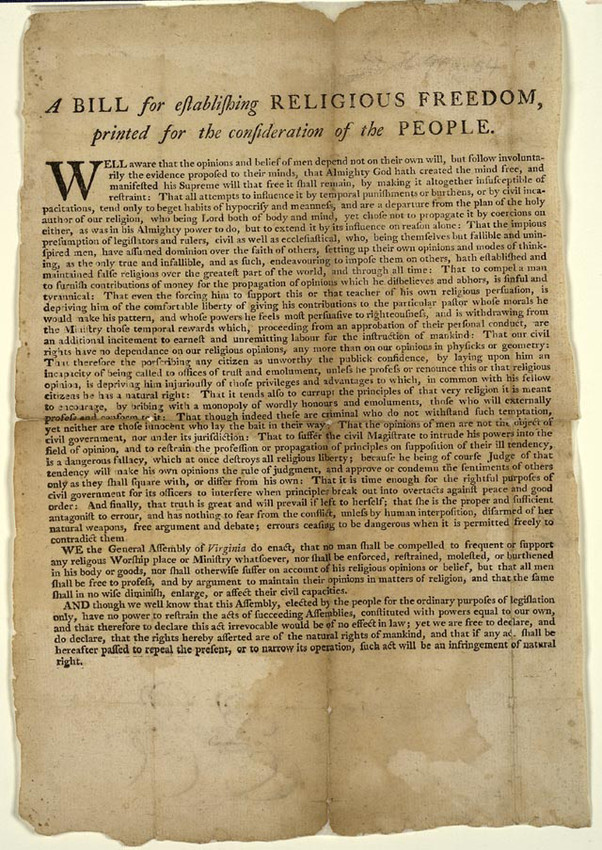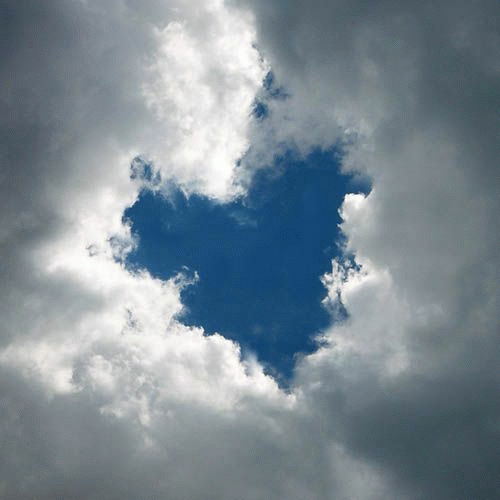
It is assumed and generally purported that the principles upon which America relies for its definition as a nation are what Jefferson described as the “self-evident truths” — “that all men are created equal and are endowed by their Creator with certain unalienable Rights, that among these are Life, Liberty, and the pursuit of Happiness.”
Of course it is being pointed out more than ever that Jefferson was one of the biggest slave owners in Virginia at the time he wrote those words. Slavery lasted for another century followed by one hundred years of Jim Crow South. And even now we haven’t come close to this ideal. Becoming an American by publicly assenting to human equality within our borders does not exactly cut rational muster.
But America was patently unique in agreeing to codify one absolute Divinely endowed and inalienable right. The First Amendment to the Constitution guarantees that government cannot take away a person’s life, liberty and/or property for what that person truly believes. The very fact is, as understood by Thomas Jefferson — this understanding explained in prosaic detail in his Virginia Statute for Religious Freedom, the precursor to the Bill of Rights guarantee of religious freedom — that nobody but a Higher Power in concert with the individual can effect that person’s true beliefs. In his original opening sentence, deleted from the text of the final bill, Jefferson asserts that all beliefs, metaphysical and otherwise, are established by convincing proofs: “Well aware that the opinions and belief of men depend not on their own will, but follow involuntarily the evidence proposed to their minds …”. Furthermore he pointed out “ that all attempts to influence it by temporal punishments, or bur[d]ens, or by civil incapacitations, tend only to beget habits of hypocrisy and meanness, and are a departure from the plan of the holy author of our religion, who being lord both of body and mind, yet chose not to propagate it by coercions on either, as was in his Almighty power to do, but to extend it by its influence on reason alone.”
First it was in the laws of the Virginia Commonwealth — then added in the two short clauses in the First Amendment — “Congress shall make no law respecting an establishment of religion, or prohibiting the free exercise thereof.” Being that all the rights established in the Constitution are for “persons”, and especially given the “disestablishment” clause, this specifically does not say that only religious organizations have a right to exist. It does say that you can believe that the first humans were planted here by aliens from another galaxy and you are being given instructions in messages spoken to you over your microwave oven. As long as what you do or say does not impinge on other peoples’ rights no one can legally do anything to prohibit you. First only pertaining to the federal government, it soon spread to the rest of the states and eventually in various degrees to most of the world.
That “experiment”, as Thomas Jefferson and John Adams referred to it in famous correspondences, is the most successful national codification in the history of Civilization. That is America.
And here’s the test: the one place in America where there is no religious freedom is within the walls of an established religious denomination. If you don’t believe what they believe and you express that publicly they have the right to kick you out. But once you are off their premises it is guaranteed by the founding document of the Country you are in that you can do and say to whoever whatever it is you believe. That is because you are back in the free American atmosphere.
Nowhere ever had it been like that before there was the United States of America.

{ 0 comments… add one now }